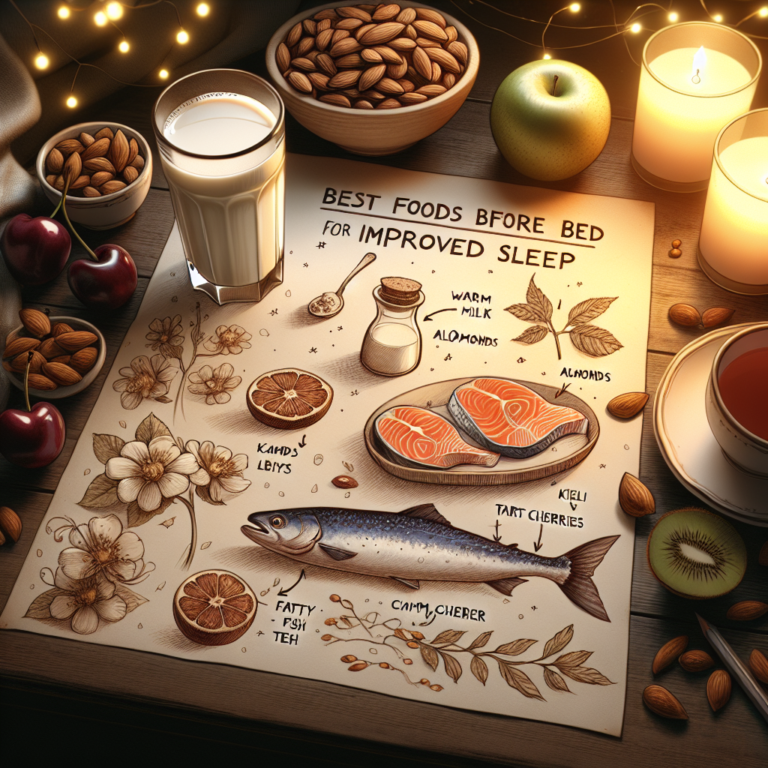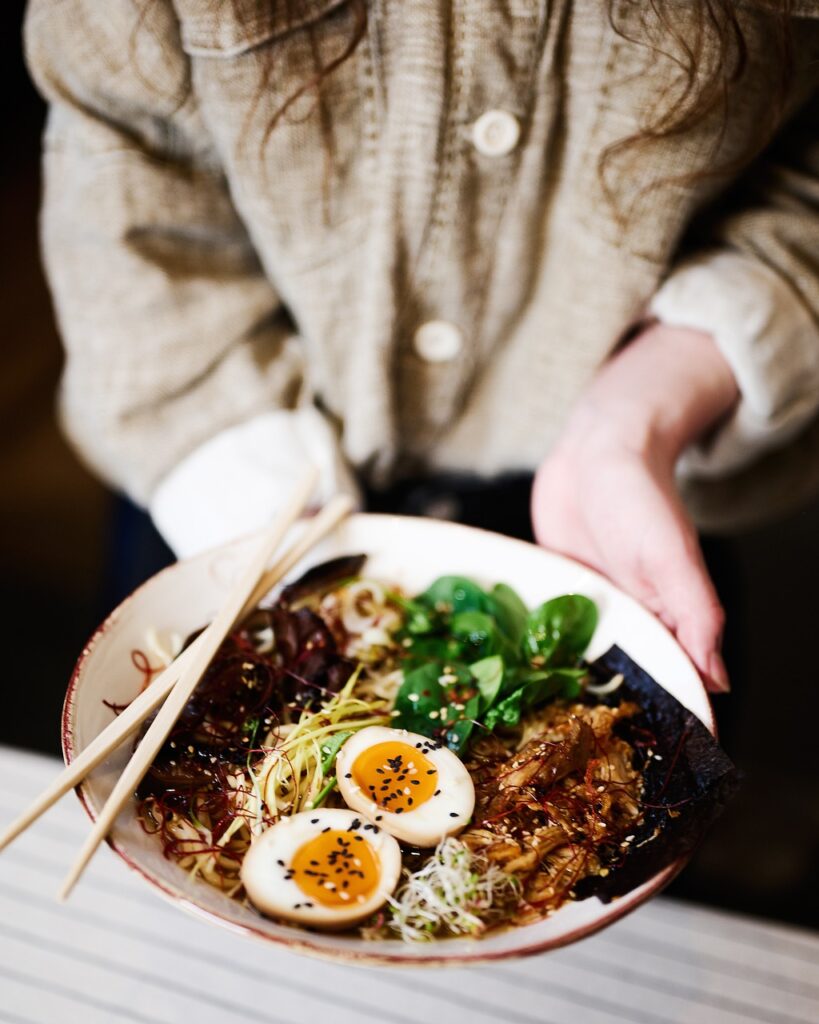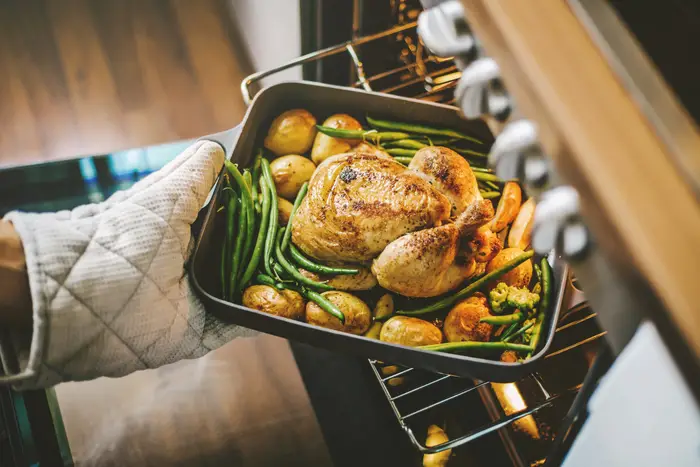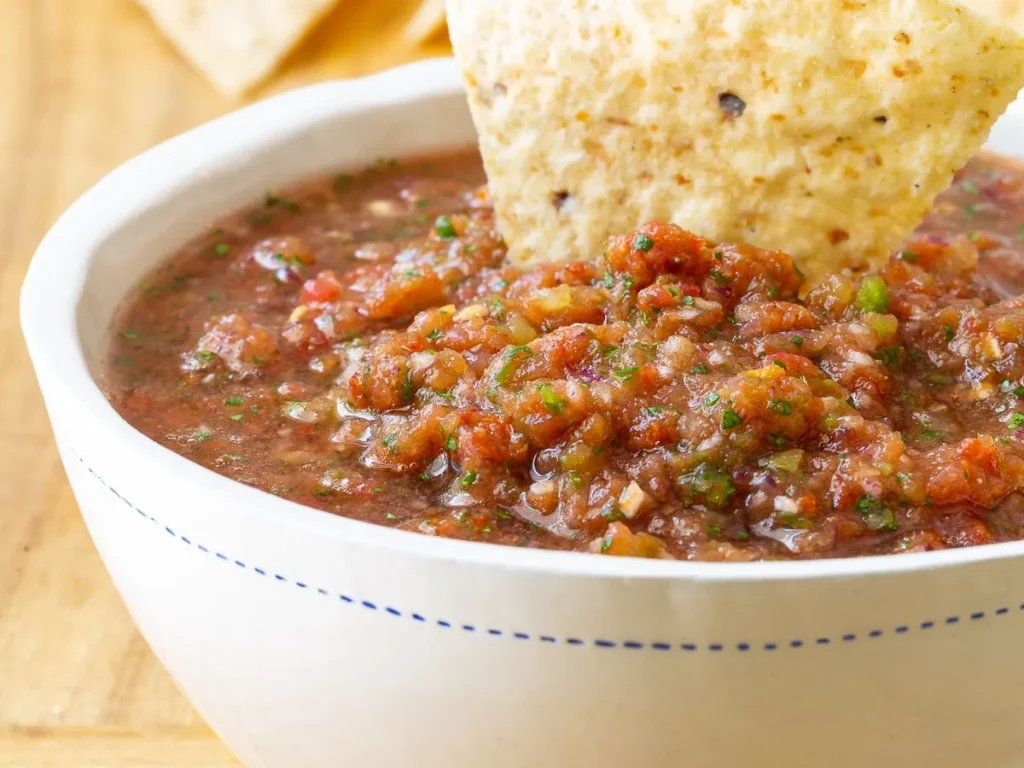Getting a good night’s sleep is critical for your overall health and well-being. But did you know that what you eat before hitting the sack can significantly impact the quality of your sleep? That’s right, the right nighttime meals and late-night bites can help you drift off to dreamland. So if you’re looking for dinner ideas that are conducive to a good night’s rest, you’re in the right place.
In this article, we’ll explore some of the best foods to eat before bed, ensuring you’re setting yourself up for a restful night.
Understanding Sleep-Inducing Foods
Before we dive into specific foods, it’s important to understand why certain foods can help you sleep better. Foods high in specific nutrients like magnesium, potassium, and certain amino acids can promote relaxation and help regulate sleep patterns. Additionally, meals that are easy to digest and low in heavy fats and spices are more likely to let you sleep comfortably without disruption.
The Role of Tryptophan
Tryptophan is an amino acid that the body uses to produce serotonin, which in turn is converted into the sleep hormone melatonin. Foods high in tryptophan can naturally increase melatonin levels, aiding in a quicker and more restful sleep.
Magnesium and Potassium
Magnesium and potassium are minerals that also help relax muscles and nerves, which contributes to a calming effect on the body. Eating foods that are rich in these minerals before bed can help reduce sleep disturbances.
Top Dinner Ideas for Better Sleep
When considering dinner options, aim for meals that are balanced and contain sleep-promoting nutrients. Here are some ideas that combine complex carbohydrates, healthy fats, and proteins:
Turkey and Whole Grain Bread
Turkey is well-known for its high tryptophan content. Pairing it with whole grain bread, which contains complex carbohydrates, can help the tryptophan reach the brain more easily. This simple combination can be the foundation of a sleep-friendly dinner.
Grilled Chicken with Quinoa
Chicken, another good source of tryptophan, can be combined with quinoa—a whole grain that’s also packed with magnesium and protein. This meal is not only delicious but also conducive to a good night’s sleep.
Baked Salmon with Sweet Potato
Salmon is rich in omega-3 fatty acids and vitamin B6, which are both conducive to better sleep. Sweet potatoes are not only a source of complex carbs but also contain potassium to help you relax. This meal is both comforting and sleep-promoting.
Veggie Stir-Fry with Tofu
For a vegetarian option, tofu is a good source of tryptophan. Combine it with a variety of veggies in a stir-fry for a light and healthy meal before bed. Just remember to keep the sauce light and avoid too much sodium.
Snacks for Late-Night Cravings
Sometimes, despite having dinner, you might find yourself hungry again before bed. Instead of reaching for sugary or fatty snacks, try these healthier options:
Greek Yogurt with Berries
Greek yogurt is a great source of calcium, which helps the brain use tryptophan to produce melatonin. Berries add a touch of sweetness and are high in antioxidants.
Banana with Almond Butter
Bananas not only have potassium and magnesium but when paired with almond butter, provide a satisfying combination of carbohydrates and healthy fats.
Whole Grain Crackers with Cottage Cheese
Whole grain crackers provide complex carbs, while cottage cheese is rich in protein and tryptophan. This snack is easy to digest and won’t disrupt your sleep.
A Small Bowl of Cherries
Cherries are one of the few natural foods that contain melatonin. A small bowl of fresh or tart cherries can be the perfect late-night snack to help you fall asleep.
Foods to Avoid Before Bed
Just as some foods can promote better sleep, others can interfere with it. Here are a few to avoid before bedtime:
Heavy or Rich Foods
Fatty foods take longer to digest and can cause discomfort that interferes with sleep. Avoid rich, heavy meals right before bed.
Spicy Foods
Spicy foods can cause heartburn or indigestion, making it difficult to fall asleep or stay asleep.
Caffeine and Alcohol
Caffeine is a stimulant and should be avoided in the evening hours. While alcohol may initially make you feel drowsy, it can disrupt your sleep cycle later in the night.
Tips for Better Sleep Hygiene
Along with choosing the right foods, following good sleep hygiene practices can further improve your sleep quality:
Regular Eating Schedule
Try to eat your meals at the same times every day to regulate your body’s internal clock.
Mindful Eating
Be mindful of portion sizes and give yourself time to digest before going to bed. Eating too much or too soon before bedtime can lead to discomfort and restlessness.
Relaxing Evening Routine
Create a relaxing routine before bed that does not involve eating, such as reading or meditating, to signal to your body that it’s time to wind down.
Conclusion
Eating the right foods before bed can be a game-changer for your sleep quality. Opt for meals and snacks that are rich in sleep-promoting nutrients like tryptophan, magnesium, and potassium. Remember to keep dinner light and avoid foods that may disrupt your sleep.
By being mindful of what you eat in the evening and practicing good sleep hygiene, you can enjoy a more restful night and wake up feeling refreshed and ready to tackle the day.
Sweet dreams and bon appétit!







